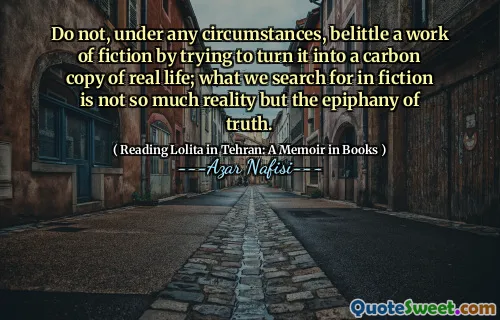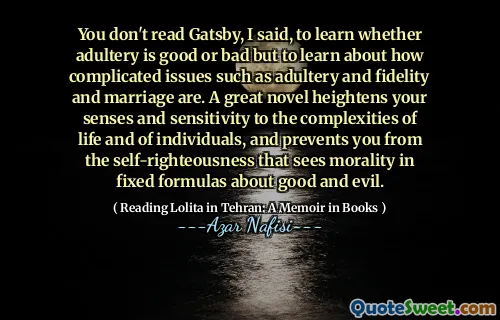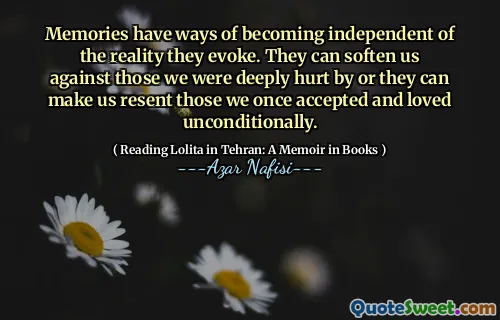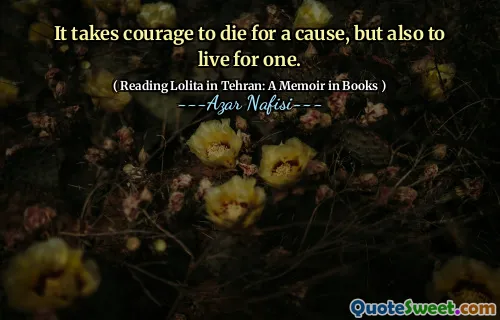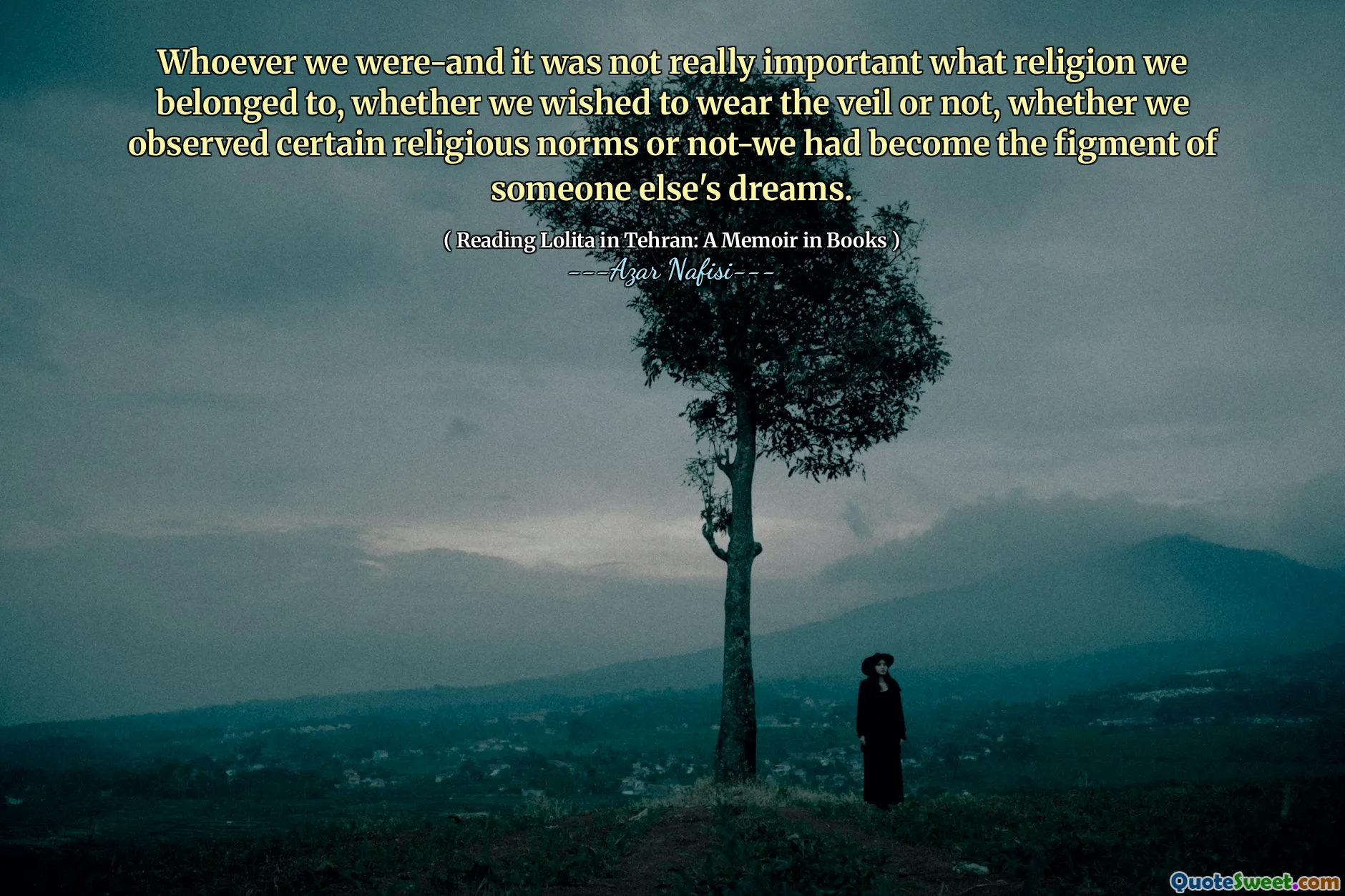
Whoever we were-and it was not really important what religion we belonged to, whether we wished to wear the veil or not, whether we observed certain religious norms or not-we had become the figment of someone else's dreams.
📖 Azar Nafisi
In Azar Nafisi's "Reading Lolita in Tehran," the author reflects on the concept of identity and the limitations imposed by societal expectations. Regardless of individual beliefs or practices—be it religion, attire, or traditions—people often find themselves defined by the perceptions and desires of others. This sentiment underscores how external forces shape personal identities, overshadowing personal choices and aspirations.
Nafisi illustrates how individuals can become mere representations or fantasies in the eyes of an oppressive society. The quote emphasizes the struggle for self-definition in a world that seeks to impose its own narrative upon individuals. It highlights the importance of personal agency in resisting societal labels and reclaiming one's identity amidst the pressures of conformity.

